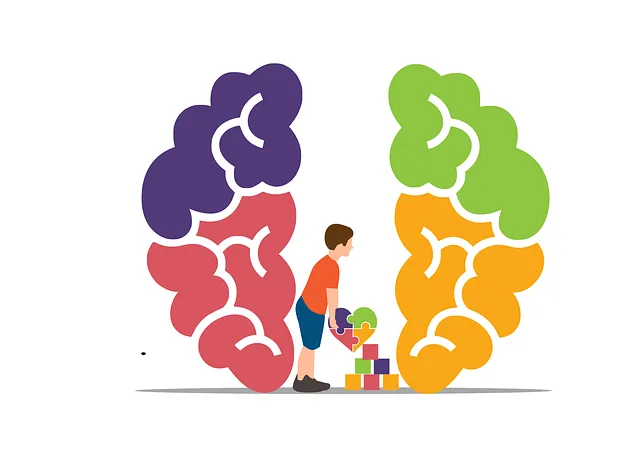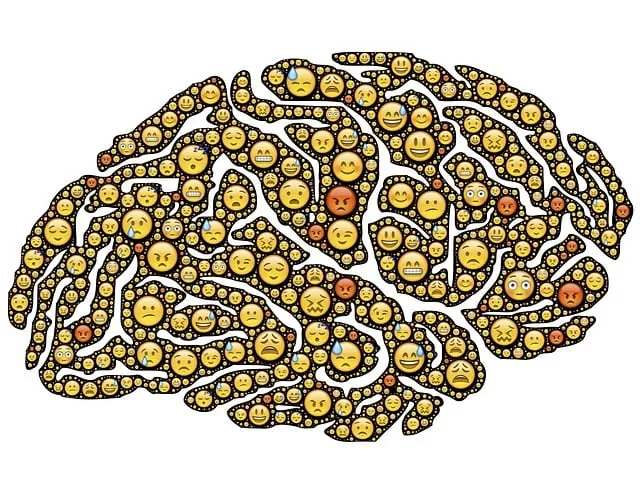Coping skills are essential for managing stress and emotions in high-pressure environments like Kaiser Permanente mental health Aurora, preventing burnout among healthcare professionals. Developing resilience through self-awareness exercises, mindfulness, deep breathing, and effective communication improves patient care and career sustainability. At home, supportive environments with open family communication enhance coping abilities. Kaiser Permanente recommends Mindfulness Meditation, Deep Breathing, Mental Wellness Coaching Programs, and Public Awareness Campaigns to boost professional coping skills. Their comprehensive programs focus on adaptability, stress management, trauma healing, and evidence-based practices tailored to diverse communities through community outreach.
Coping skills are essential tools in navigating life’s challenges, especially on one’s mental health journey. This article explores the significance of these skills and provides insights from Kaiser Permanente Mental Health Aurora’s perspective. We’ll uncover strategies for developing effective coping mechanisms at home and work, emphasizing a holistic approach to well-being. Additionally, we delve into building resilience as a long-term strategy for enhancing mental fortitude.
- Understanding Coping Skills and Their Importance in Mental Health Journey
- Strategies for Developing Effective Coping Skills at Home and at Work (Kaiser Permanente mental health Aurora's Perspective)
- Building Resilience: Long-term Coping Skills for Improved Well-being
Understanding Coping Skills and Their Importance in Mental Health Journey

Coping skills are a set of strategies individuals use to navigate and manage stress, emotions, and challenging situations. They play a pivotal role in mental health journeys, as they help people cope with life’s demands and maintain overall well-being. Recognizing and understanding these skills is essential, especially for healthcare providers like those at Kaiser Permanente mental health Aurora who encounter high-stress environments daily.
Developing strong coping mechanisms can prevent burnout, a significant concern among healthcare professionals. Burnout Prevention Strategies for Healthcare Providers often emphasize self-awareness exercises and healthy coping habits to maintain balance. By incorporating techniques such as mindfulness, stress management, and effective communication, individuals can enhance their resilience and navigate stressful situations more effectively. This, in turn, contributes to improved patient care and a more sustainable career path.
Strategies for Developing Effective Coping Skills at Home and at Work (Kaiser Permanente mental health Aurora's Perspective)

At home, fostering a supportive environment is key to developing effective coping skills. Kaiser Permanente mental health Aurora recommends incorporating practices such as mindfulness meditation and deep breathing exercises into daily routines. These techniques help individuals manage stress and cultivate emotional resilience. Encouraging open communication among family members also plays a significant role; sharing feelings and experiences allows everyone to learn healthy coping strategies together, creating a safe space for vulnerability and growth.
In the professional realm, work environments that prioritize mental wellness can greatly enhance employees’ ability to cope with challenges. Kaiser Permanente mental health Aurora suggests implementing Mental Wellness Coaching Programs Development to provide personalized guidance and support. Additionally, organizing Public Awareness Campaigns Development focused on stress management and resilience-building can foster a culture of open dialogue about mental health. Boosting confidence through training sessions or workshops empowers individuals to navigate work-related pressures more effectively, ultimately improving overall job satisfaction and productivity.
Building Resilience: Long-term Coping Skills for Improved Well-being

Building resilience is a key aspect of developing long-term coping skills that can significantly enhance overall well-being. At Kaiser Permanente mental health Aurora, we understand the importance of equipping individuals with strategies to navigate life’s challenges and setbacks. Our comprehensive programs focus on fostering adaptability, enabling people to bounce back from stress, adversity, or traumatic events more effectively. This involves learning to recognize triggers, managing emotions, and adopting healthy coping mechanisms tailored to individual needs.
Our approach integrates evidence-based practices alongside cultural sensitivity in mental healthcare practice, ensuring that care is accessible and effective for diverse communities. Through community outreach program implementation, we connect with individuals where they are, providing support systems and resources that promote self-care and resilience. By addressing these aspects, Kaiser Permanente mental health Aurora aims to empower individuals to build a robust foundation for their mental well-being, enabling them to face future challenges head-on.
Coping skills development is a multifaceted process that significantly contributes to mental well-being, as highlighted by Kaiser Permanente mental health Aurora. By understanding and implementing effective strategies at home and work, individuals can enhance their resilience and navigate life’s challenges more adeptly. Building long-term coping skills not only fosters personal growth but also enables folks to lead more vibrant, balanced lives, ultimately enriching their tapestry of overall well-being.






